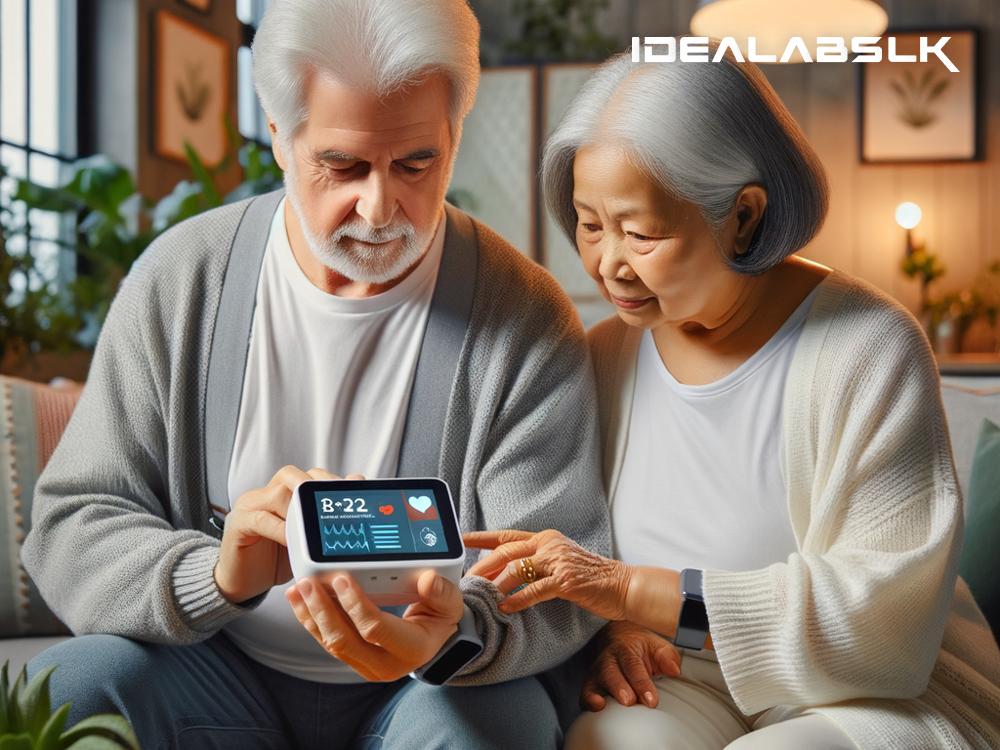In the world of healthcare, technology isn't just transforming how we manage and treat diseases, it's revolutionizing the way we approach aging and chronic illness management, especially for the elderly. Smart health devices, in particular, have emerged as a beacon of hope, offering an innovative and simplified approach to managing medication and chronic conditions for our aging population. These devices promise not only to enhance the quality of life for the elderly but also to empower them to maintain their independence.
The Rise of Smart Health Devices
Smart health devices refer to a wide range of technological gadgets designed to monitor, alert, and even treat health-related issues. From smartwatches that can detect falls, to pill dispensers that remind you when it's time to take your medication, the spectrum of devices is broad and incredibly beneficial. For the elderly, particularly those managing multiple medications or living with chronic conditions such as diabetes, heart disease, or hypertension, these devices are not just convenient – they can be life-saving.
How These Devices Are Making a Difference
Simplifying Medication Management
One of the biggest challenges the elderly face is keeping up with their medication schedules. Missing doses or taking the wrong medication can have serious, even fatal, consequences. Enter smart pill dispensers and reminder apps. These devices can be programmed to remind users when it's time to take their medication, dispense the right dosage, and even alert caregivers if a dose is missed. This reduces the risk of medication errors and relieves the stress of trying to remember complex medication schedules.
Facilitating Remote Health Monitoring
Remote health monitoring has been a game-changer for elderly patients with chronic conditions. Wearable devices like smartwatches and health monitors can track vital signs such as heart rate, blood pressure, and glucose levels in real-time. This data can be shared with healthcare providers, allowing for timely intervention before a minor issue becomes an emergency. For the elderly, this means fewer hospital visits and the ability to stay on top of their health from the comfort of their home.
Enhancing Safety and Independence
For many elderly individuals, the fear of falling or becoming incapacitated with no one around to help is a significant concern. Smart health devices address this fear head-on. Devices like medical alert systems and GPS trackers offer peace of mind to both the elderly and their families. With the push of a button or even automatic fall detection, help can be summoned immediately. This not only ensures safety but also bolsters the confidence of the elderly to live independently.
Promoting Healthy Lifestyles
Maintaining an active and healthy lifestyle is crucial for managing chronic conditions and improving overall well-being. Smart health devices facilitate this by tracking physical activity, sleep patterns, and even nutrition. These insights can motivate the elderly to make healthier choices, such as increasing their daily step count, improving sleep hygiene, or adjusting their diet. Moreover, the inclusion of gamified elements in these devices can make the process fun and engaging.
Challenges and Considerations
While the benefits of smart health devices are plentiful, there are challenges to be mindful of. The digital divide can exclude those who are unfamiliar with technology. Privacy and security concerns surrounding personal health data are also valid. Hence, it’s essential for device manufacturers to prioritize user-friendly designs and robust data protection measures. Furthermore, the cost of these technologies can be prohibitive for some, making it essential for healthcare systems to explore subsidy options or insurance coverage.
The Future is Bright
As technology continues to evolve, the potential of smart health devices to transform elderly care is boundless. Innovations in AI and machine learning are poised to make these devices even smarter, offering more personalized and predictive healthcare solutions. The integration of telehealth services with smart devices further promises to enhance the accessibility and efficiency of healthcare for the elderly.
In conclusion, smart health devices are playing a pivotal role in helping the elderly manage medication and chronic conditions. By simplifying medication management, facilitating remote health monitoring, enhancing safety and independence, and promoting healthy lifestyles, these devices are not just improving healthcare outcomes but are also empowering the elderly to lead more fulfilling lives. As we look ahead, it’s clear that the intersection of technology and healthcare holds immense promise for improving the quality of life for our aging population.

